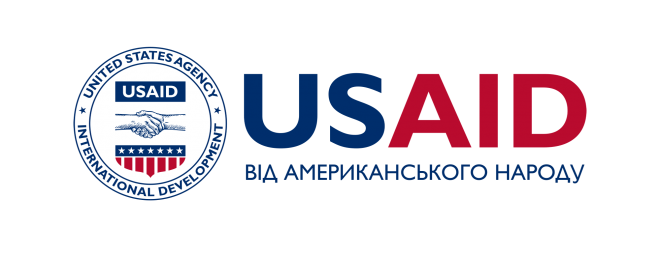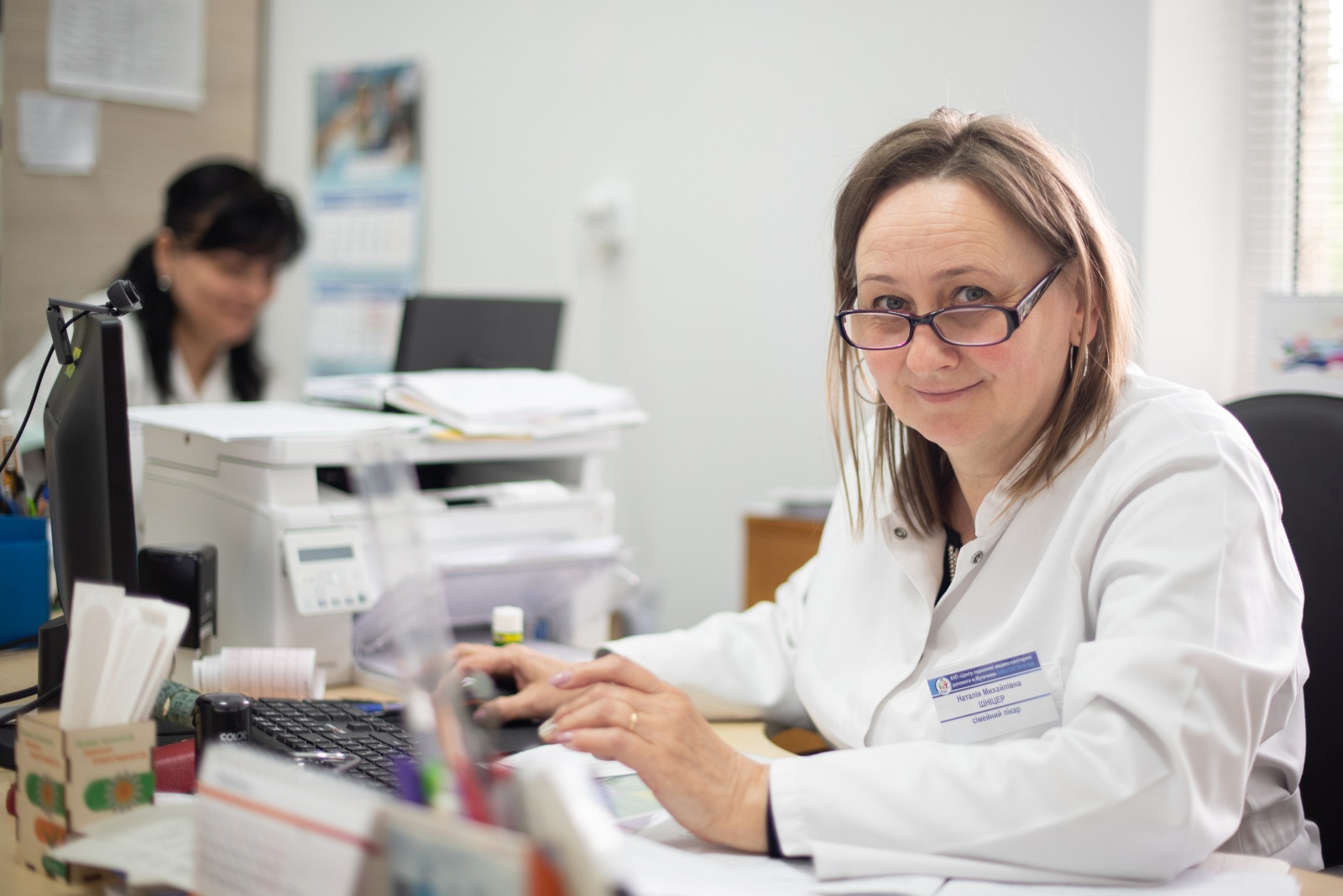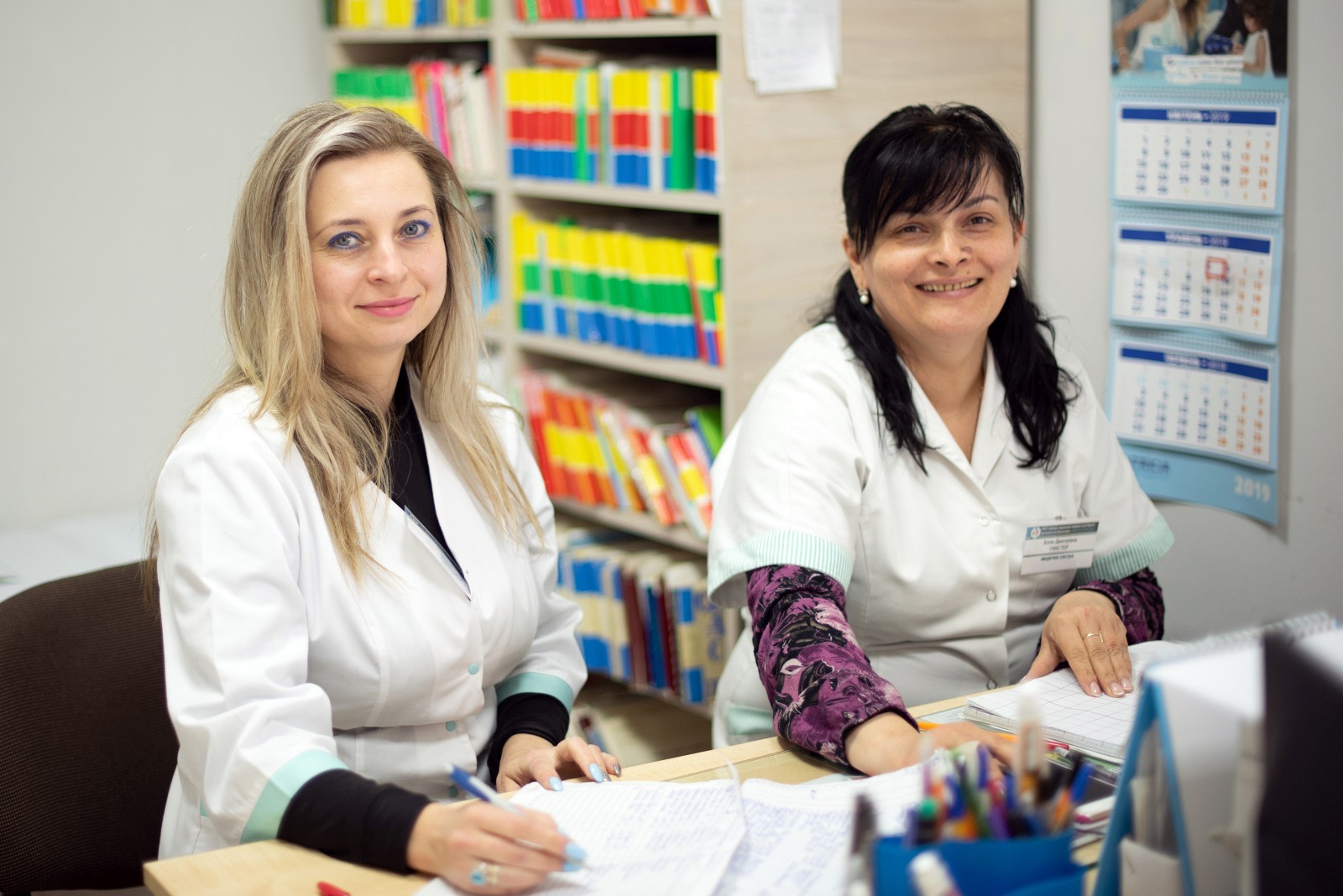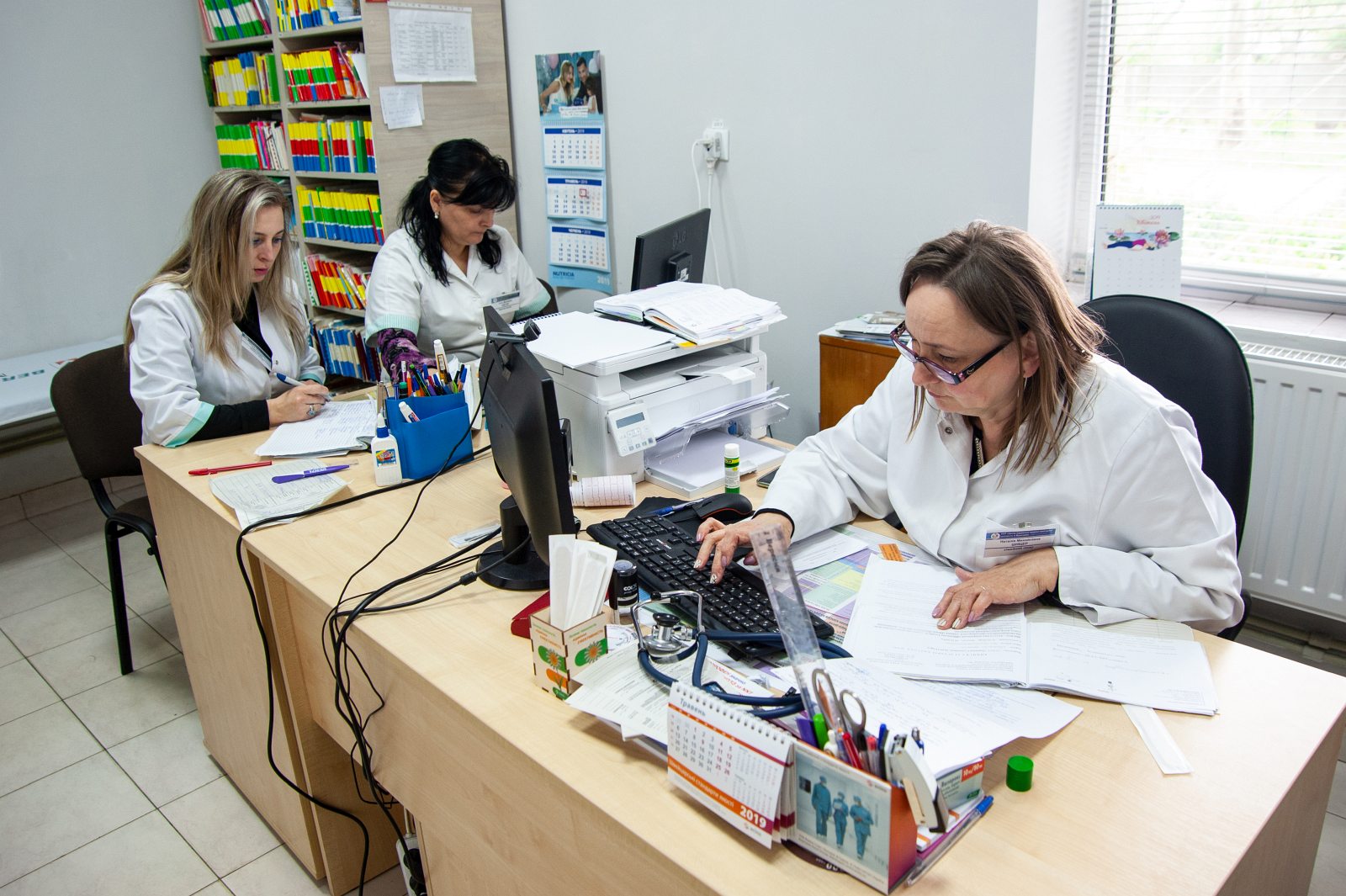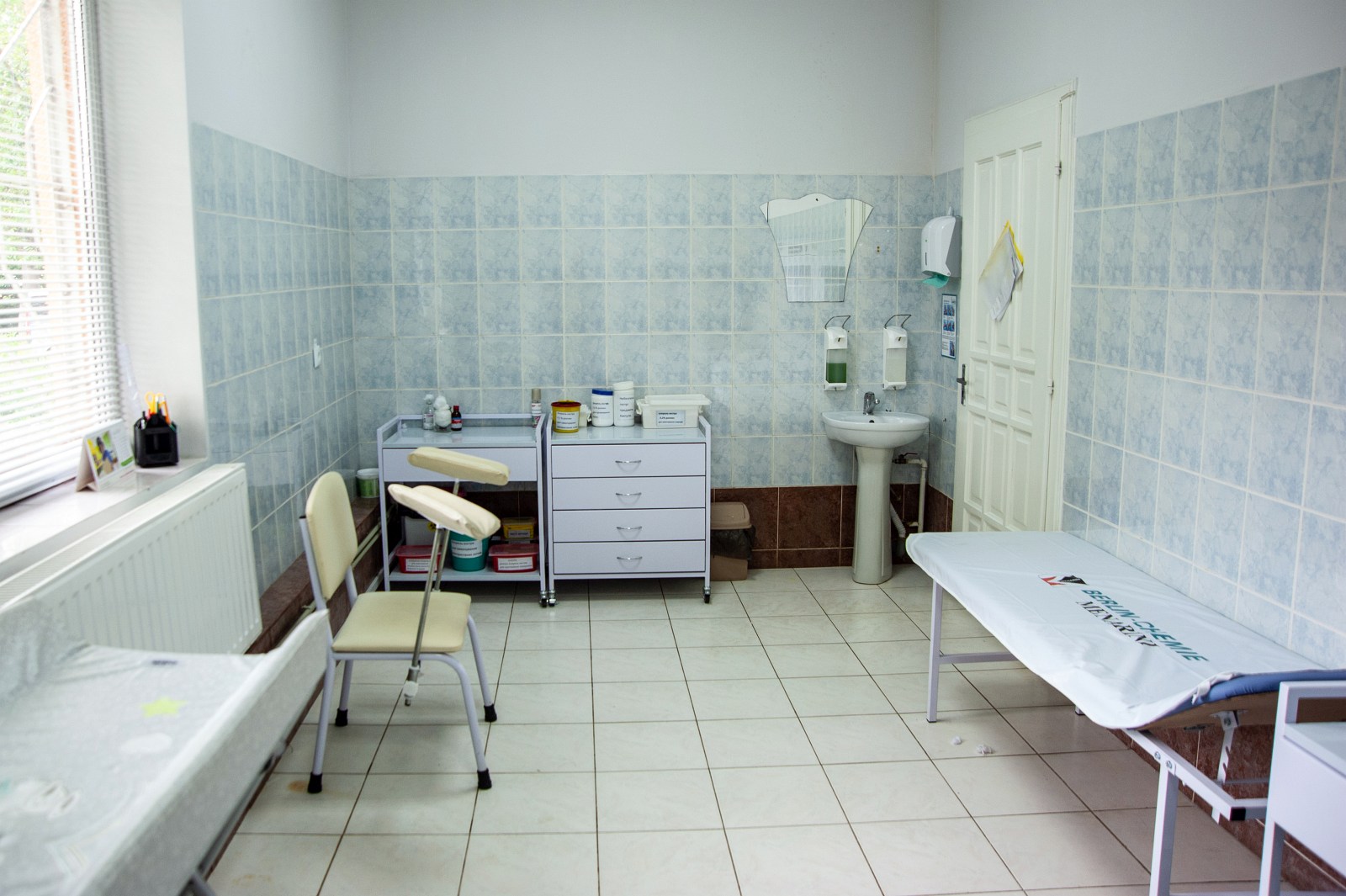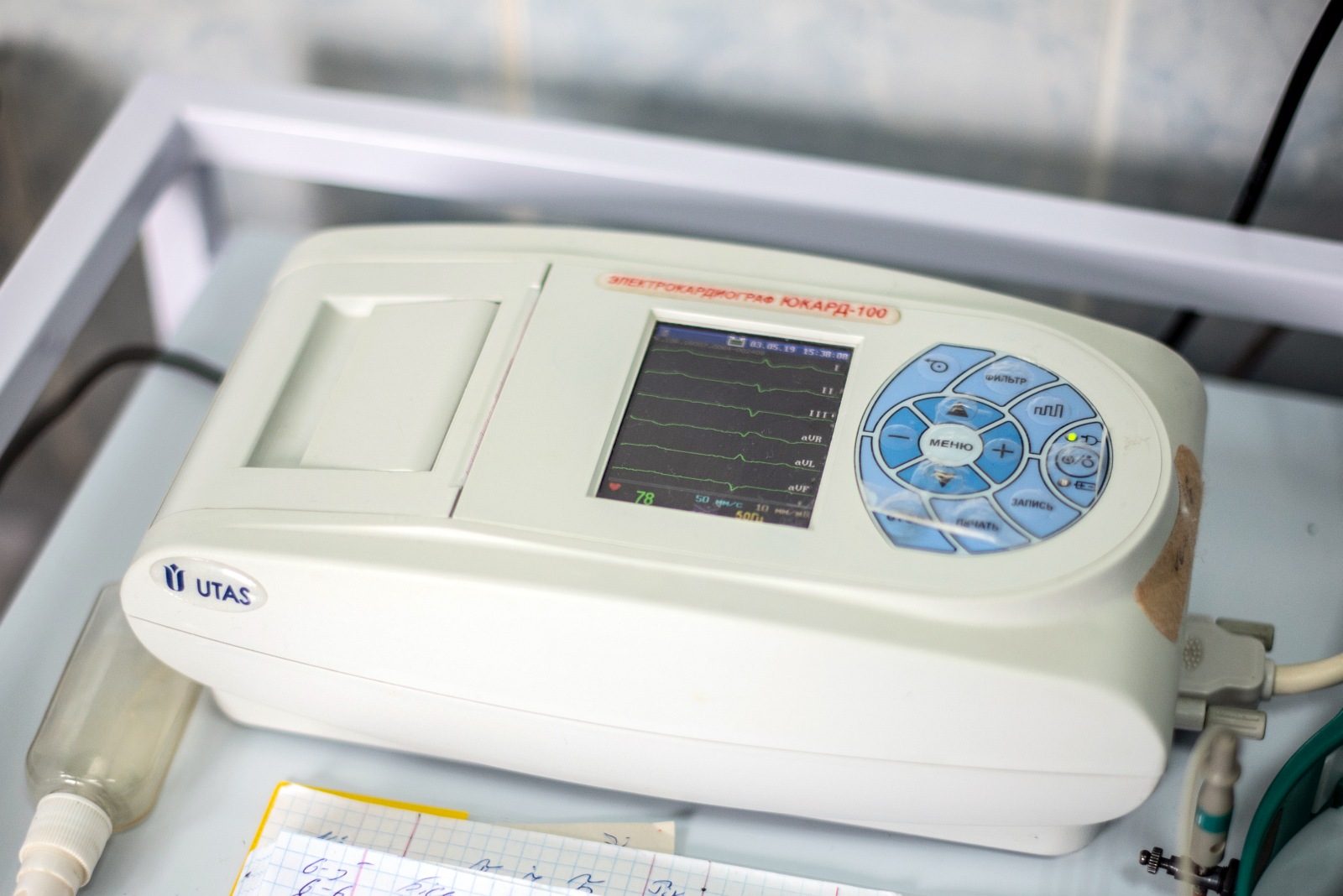They launched a medical system reform even before Uliana Suprun turned the process into a mainstream all over the country. Now the minister uses Mukachevo as an examplar for others.
“I have finally reached Transcarpathia with one of my working trips. My greatest discovery is Mukachevo, where powerful changes have taken place. The town must become an example of making transformations in health care”. This is what Uliana Suprun wrote in her Facebook account on January 2019, summing up the results of her visit to Transcarpathian region. – “The medical centers have already passed the autonomisation process, being the first to join the transformation. Salaries have been risen for family doctors. Moreover, the town has quite a number of its own working programs aimed at treating the town residents. And doctors have been given such working environment that specialists from other regions are not moving to Hungary for work but rather move here.<…>We will be using them as an example and advise to towns of the same scale or a bit larger ones to use Mukachevo’s experience”.
We tried to find out all about the experience, by interviewing Yevhen Meshko, Chief Doctor of the Centre of Primary Health Support of Mukachevo. He has been in the profession for 6 years only, having worked for 3 years within the previous system and the rest 3 years – with the reformed one. But it would be more accurate to say that it was him who became the head of the reforming process in his centre.
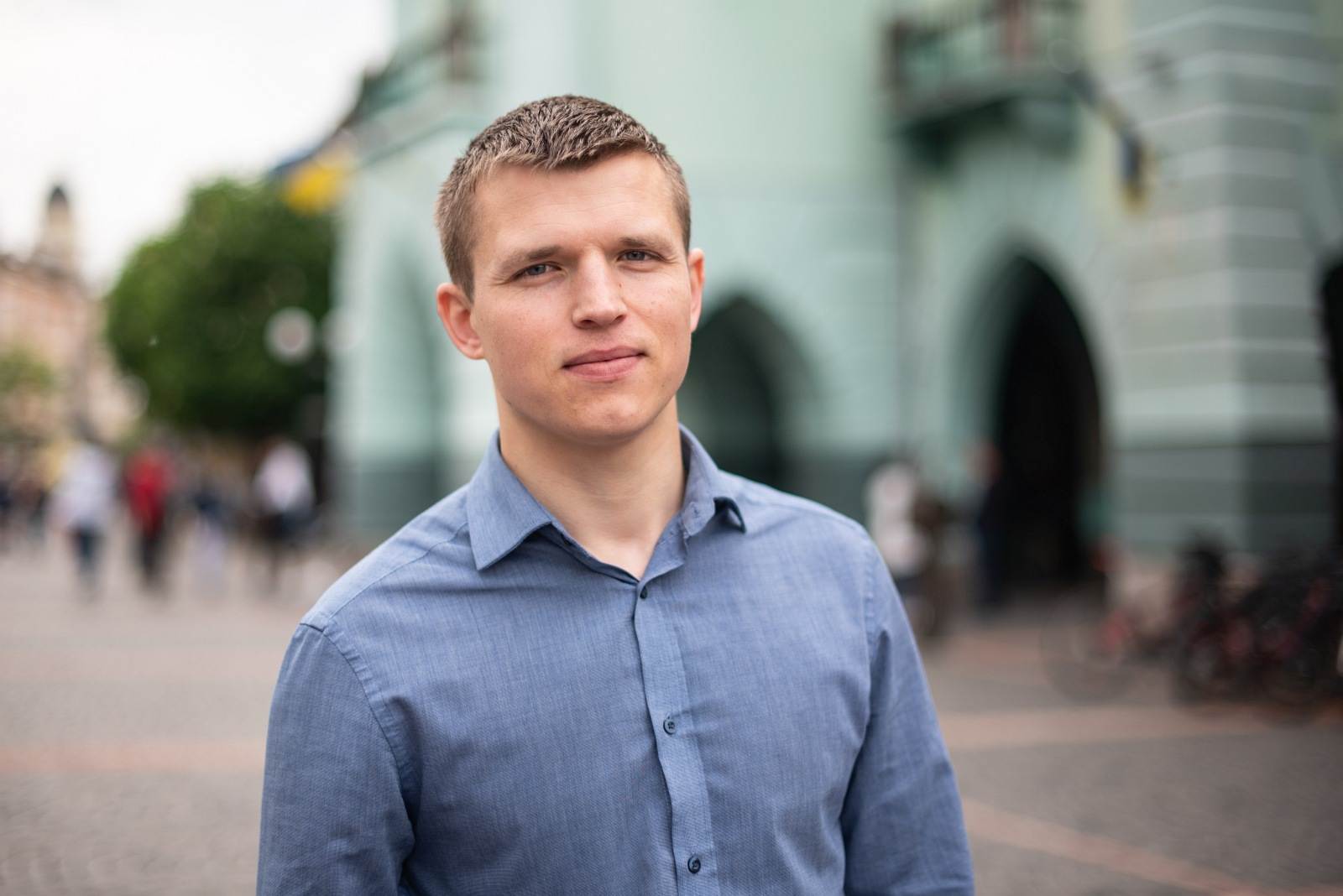
It was true that the reform was launched in Mukachevo as soon as the newly appointed minister declared it was coming at the state level, back in 2016. They decided to take the risks in the town with its 85 thousand residents – and to try and change the then half-Soviet medical branch, highly corrupted and financially inefficient.
That’s the key point of Ukraine’s medical reform. Mukachevo believed in it sooner than other towns and cities and has been implementing the reform for the last 3 years step by step.
At the first stage of reforming, the health care centers of Mukachevo had to be reorganized, optimized and audited in detail. Thus, the hospital area had to be deprived of all commercial drug-store shops, and a municipal company, “Social Pharmacy” was established.
Also, a few medical programs were launched in Mukachevo, with a biggest ever financial support. And it’s not just about providing town residents with medical supplies in the hospital but an oncology-treating program, pharmacy provision of persons with transplanted organs and patients receiving Renal replacement therapy and others. A special attention should be paid to the Program of additional social and medical protection for residents of Mukachevo. According to it, the town residents may obtain free treatment of cataract, endoprosthetics of joints, aortocoronary bypass installation, valve replacement, chemotherapeutic agents, anti-viral medications against hepatitis.
Further on in our conversation with Yevhen Meshko, we dwelt on all of this, as well as touched the details of electronic medical system in the town, family doctors, providing with medical supplies, HR issues and salaries. Here it goes.
– Yevhen, you have already had a chance to work during the previous system. What has changed for you personally by now?
– The values and ideas that I am currently supporting have been important to me even before the reform was launched. I never violated them, neither then nor now. They have become to be implemented, and that’s good.
– For instance?
– First of all, the patient doesn’t have to pay for anything. And to “return the favor”, the more so. On the other hand, a doctor must have a high salary and feel dignity. Not to look down in a conversation with a patient and stop thinking if the patient is going to give him something for the attendance.
Secondly, those working in the medical branch, like in any other one, must not think of wrapping up a deal to earn money. Any relationships must be clear, honest and based on trust and respect.
– Reforming the medical branch in Mukachevo started a bit earlier than in the rest of the country – about 3 years ago. Tell us how it went.
– In Ukraine the reform of the health care branch began with coming of the new acting Minister, Miss Uliana Suprun, at the end of 2016. The Ministry was then busy with compiling the base, while the refor itself could be noticed from the beginning of this year.
In Mukachevo the medical reform also started with changes of the senior staff but in the city administration: the newly elected Mayor set up an ambitious goal, since the weak points of the medical branch were evident, especially its ineffectiveness, low quality level and high costly features. Thus, a working strategy was developed and everything began to be changed.
– Was it difficult to explain to doctors, your colleagues, that it would all be different from now on? What approaches to them were you seeking for and which really worked out?
– In 2016 I moved to the family branch department, previously working as the Polyclinic Deputy Chief. Doctors working here were never considered real professionals before. They were assigned mostly with socially disadvantaged patients or those that did not need treatment. Specialized doctors even did not see them as colleagues.
Physicians were actually not corrupted by the system so I cannot say that in the primary health care department I could feel any resistance.
I keep to the horizontal management model, when everybody in the team may freely speak out his opinion and a decision is agreed upon collectively, so we really did a lot of communication. So I could always see that my colleagues realized why we need those changes and where we were going.
I know that in the secondary chain it was a bit different and there was some opposition. Some doctors retired and some had to be fired through court actions, for the people could realize it was time to start working in a different way.
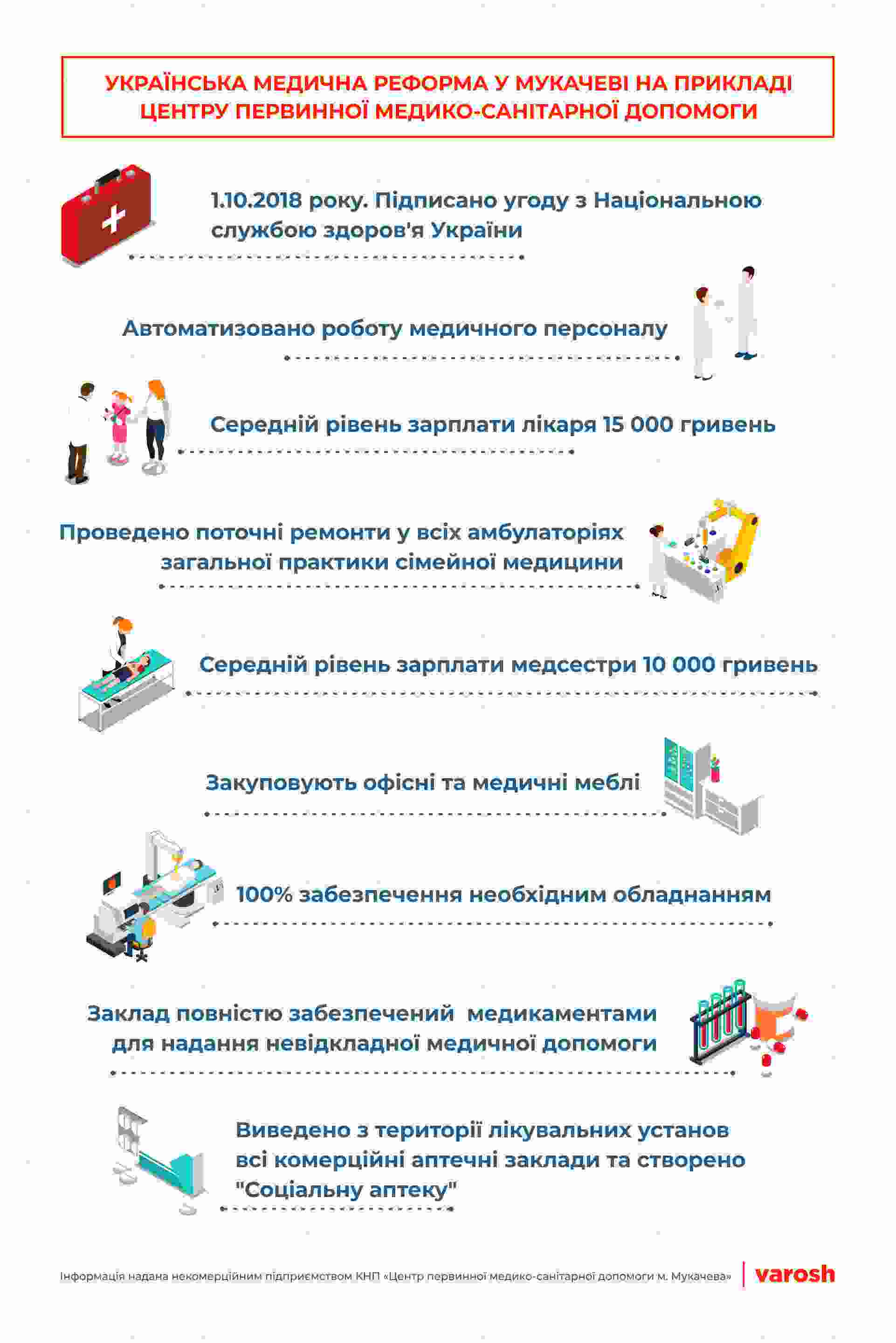
– What is it that you are personally proud of as the Chief Doctor, considering the results for the last few years of changes in your work?
– First of all, it is the electronic medical system that we started to implement in 2016. According to the Program approved by the City Council, equipment was purchased and operators places equipped. The Program budget was for 4.5 billion UAH. Then the hospital began to function as a single system incorporating all the departments, diagnostics rooms, laboratory as well. The US doctor, laboratory assistant and the doctor in a department – all of them have access to the analyses results. Electronic tests, analyses and records. It makes work simpler fir we can see the whole case record for a patient.
In 2017 we also connected to the system the policlinic affiliates and the primary chain. Not sure if such a system works so smoothly anywhere else in Ukraine. Actually it’s a whole digitalized medical space uniting all levels of health care support in the town.
Generally speaking, working with electronic bases is a continuous process so we keep on improving with each day, adding new templates but on the whole the system works 100%. Each doctor has all the necessary info for using it, and patients in most cases learnt how to use the electronic version instead of the hard copies of Records in paper.
Simultaneously to this system we implemented the electronic queue. Had you entered the policlinic 2 years ago, you would have seen corridors overcrowded with patients, there used to be constant arguments and quarrels beside the doctors’ cabinets, somebody always doing queue-jumps as a doctor’s protégée, which made people even angrier and provocative. Today there is no sign of it – and due to the electronic queue system.
It took us quite a long time to make doctors follow and understand it’s the way it should be. Now all the conscious peopled realize that it is suitable. It is only those who are not used to get accustomed to anything that don’t like it. But we have it working like that: patients registered for attendance go first and then the rest. So I am sure that such inconvenience as having to wait long will finally make such people a correct approach to timing.
Ambulance facility #6 of Mukachevo
Secondly, this is 100% procurement with drugs for the hospital department. Absolutely any treatment is taken free of charge here. I don’t know a single case like that anywhere else in the country.
As for the outpatient care, there is a list of welfare beneficiaries subject to drug provision. About 22 thousand town residents have an opportunity to receive drugs on special terms in 100% order. Taking a receipt prescribed by the doctor, the patient addresses the Social Pharmacy and gets his drugs free of charge.
Thirdly, there are town programs working in Mukachevo, for costly treatment and supplementary social and medical support. The programs are aimed to save people from poverty that may be caused by medical problems. It is thanks to these programs that residents of Mukachevo may be assured: in case something happens to them or their relatives, they may get the town support. Last year it was received by about 4 thousand town residents and the general amount spent makes about 20 billion UAH. There were some cases that a single patient was spent up to 1- 1.5 billion personally.
– It has been declared that 90% of the patient’s issues are supposed to be solved by the family doctor. Is that working in Mukachevo?
– Of course, lots of things have changed. Just a few years ago only 10% of patients addressed their family doctor, while now it is 60%. A person who concluded a Declaration has a different attitude to his/her family doctor, knowing that it’s his/her personal doctor and seeks to communicate to him directly.
I cannot say that people stopped turning to specialized doctors immediately. It still happens but will only continue until the system allows it. Ukraine is launching the so-called “gate keeping”. Beyond it, it is only the family doctor who directs to a specialized doctor. In case the patient ignores the rule, he will have t pay for attendance. This process is planned to start by 2020.
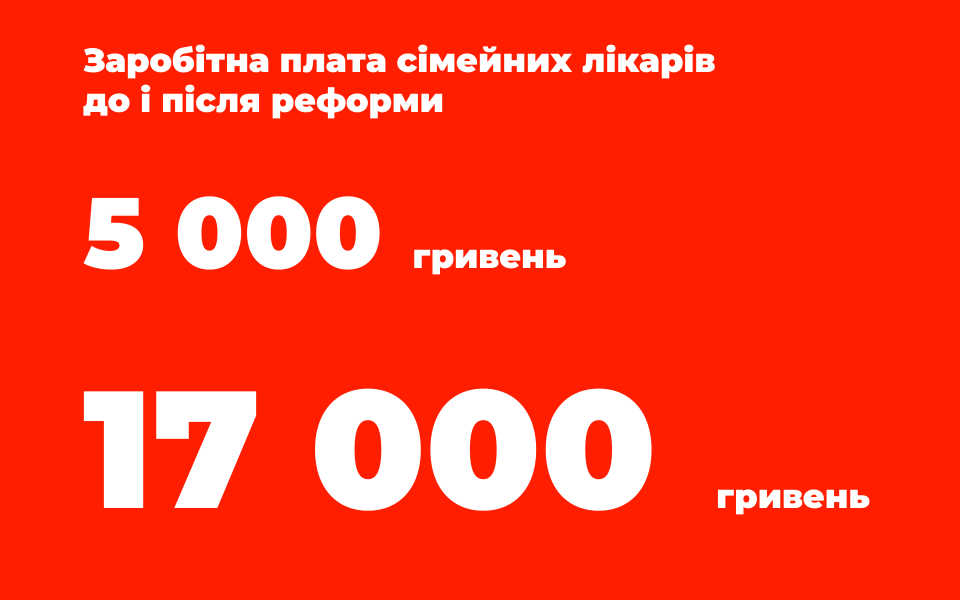
– Are there any HR problems in the primary chain?
– We don’t have staff shortage. There is only a need to do an advanced training for the staff. But, back again, once I’m saying there is no shortage in Mukachevo, that doesn’t mean the situation is the same in Berehovo. Definitely, a certain number of specialists have left Mukachevo but it did not cause a shortage. When we started to change the health care system, there was an unpleasant situation, when the surgical department retired almost entirely. But not a single problem happened. The vacant positions were occupied by young specialists with a great wish for work.
Moreover, it is important to note that there is a real competition to family doctor vacancies. It was hard to imagine before. Just 3-4 years nobody was willing to enter the family health care, it was not popular. It is envisaged by the reform that the family doctor will be the central point in the health care system.
– Have you managed to update the physical facilities during the reforming process?
– Talking about our Centre of Family medicine, we have completed maintenance in 7 ambulance facilities out of 10 and purchased equipment for 90% of the standard list. That is a doctor has all the necessary tools to work. It’s a pity that not all doctors use them yet, thought we have conducted quite a number of workshops and clinics.
– What happened to the labor remuneration?
– I hope that everybody is pleased with the increase in salaries. Approximately three times more, though it will be ore correct to say – with a differential approach. Say, previously it was envisaged by the labor remuneration system for everybody to receive the same salary, now it is otherwise. At our company, it depends on the number of declarations concluded with the doctor.
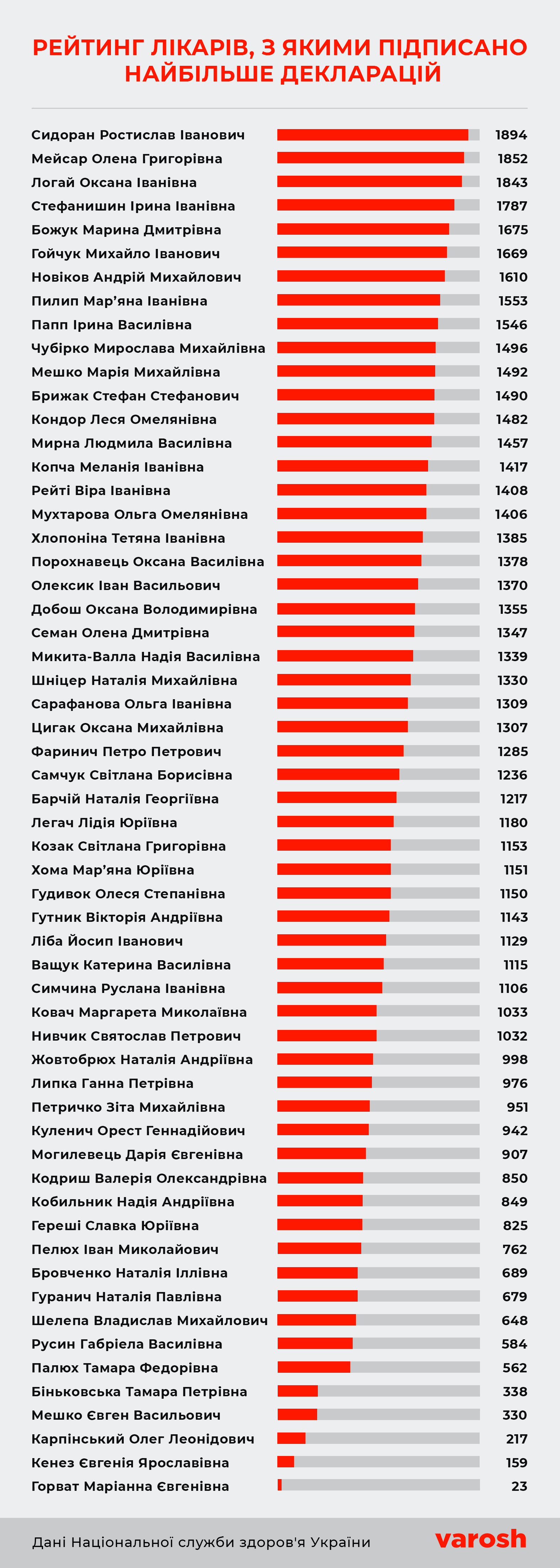
– What about the attitude of doctors and patients to one another?
– I cannot say that everything has changed drastically in a day but I can see we are changing for the better with each day. It gives inspiration both to the staff and myself for they can see the results of the changes for themselves. I always make an emphasis for the doctors: patients will start changing once they have noticed doctors changing.
– What is your personal motivation not to slow down working?
– This is my 4th or 5th position, and I didn’t work for more than a year at the previous ones. I have been here for 3 years now, and means a lot to me. Definitely I am not bored, every day my schedule is very busy. I have a feeling I can change a lot. I hope our doctors feel the same.
Currently, the reconstruction of the policlinic is at its active stage. It is planned not only to refurbish the front but install ventilation and conditioning systems, do a reconstruction of the roof, update the water supply system, sewers, heating. There is a promise for special wheelchair ramps and lifts.
Mukachevo’s experience of medical reforming is not only a local case study. It is an exemplar for other cities and regions in our country. Moreover, it proves that the announced medical reform in Ukraine is not just hollow words. The reform is possible and is already happening step by step.
Disclaimer: the present material is presented by the civic community of “Institute of Central European Strategy” with the support by US Agency for International Development (USAID). Creating the material became possible with sincere support from the American people as provided via US Agency for International Development (USAID). The contents or the material is a sole responsibility of the civic community of “Institute of Central European Strategy” and down not necessarily reflect opinion of USAID or USA government. Reproduction and use of any part of this material in any format, including graphical, electronic, copying or using in any other way whatsoever is prohibited without a link to the original source.
